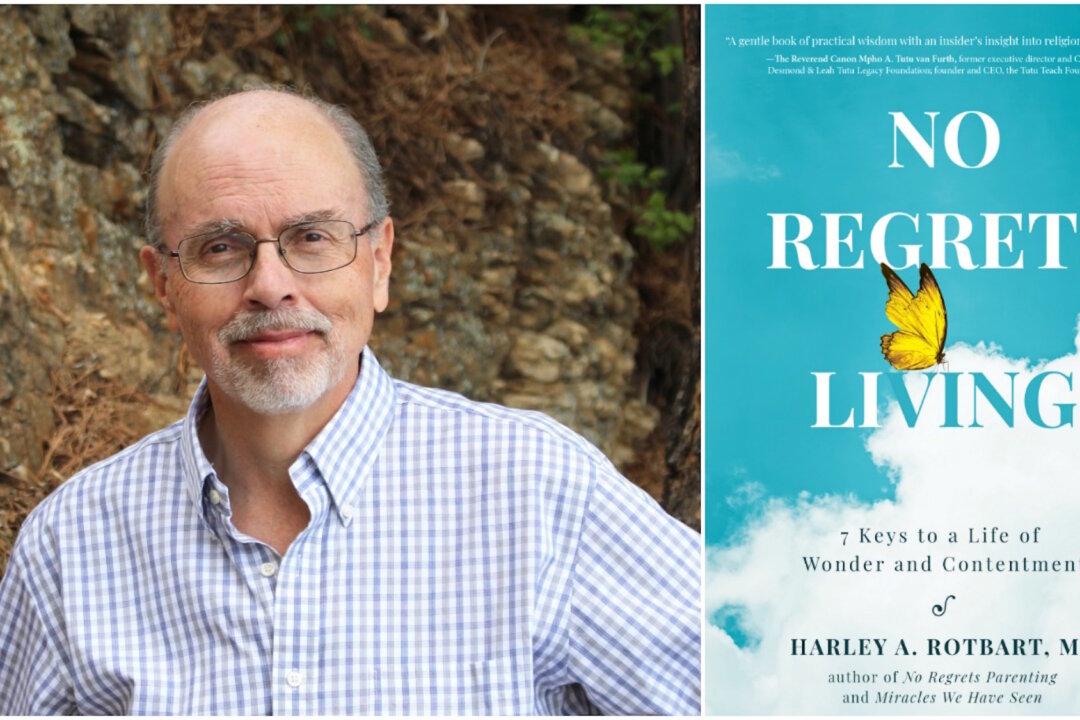Dr. Harley A. Rotbart sees life from a unique perspective. As a physician, heart surgery patient, and child of a Holocaust survivor, he understands that life is precious and fleeting. He has written two books aiming to help people stamp out regrets: “No Regrets Parenting: Turning Long Days and Short Years Into Cherished Moments With Your Kids,” and his latest, “No Regrets Living: 7 Keys to a Life of Wonder and Contentment.”
After a year that has pressed many of us to review and evaluate our lives—and what is and isn’t important—what better time than now to ask Dr. Rotbart for his ideas on how to live without regrets?






